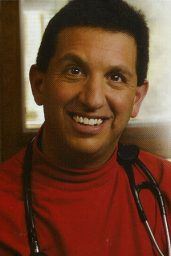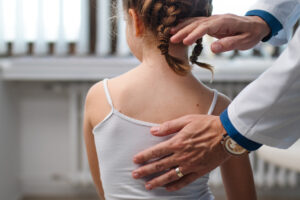I know a young woman who is a bright student but left her studies to come home after just six months at a large university.
She was academically well prepared — and she is doing well now at a local community college — but she struggled to live on her own without the help of her parents. She was depressed and had trouble making friends, eating healthy meals and getting enough rest.
In short, she wasn’t able to take care of herself. The ability to take care of your health is as important as any academic skill when heading off to college. College campuses bring together thousands of energetic young men and women — who are often on their own for the first time — creating many potential hazards to a student’s health.
Before your son or daughter heads off to college, it’s important to talk about some of the health pitfalls they may encounter and how to handle them. As the father of a rising high school senior, I know I’ll be discussing many of these topics with my daughter in the coming year.
Alcohol
It’s easy to say that kids under the age of 21 shouldn’t drink. It’s illegal. However, we know that argument is not always realistic: A recent survey of college students by the American College Health Association found that nearly two-thirds had consumed alcohol during the past 30 days.
Talk to your son or daughter about the potential consequences of drinking. We read stories each year about freshmen who have been assaulted or have lost their lives because of excessive drinking. I have also seen young 20-something patients who have developed health problems we usually don’t see until later on, such as pancreatitis and liver disease, from drinking.
Here’s a sobering statistic: In that same survey I mentioned above, 21 percent of students reported that during the past 12 months they had forgotten where they were or what they did because of drinking alcohol. Ask your child if he or she is willing to take that risk.
Illness
During my family medicine residency training, I briefly worked with students at Montclair State University. If one student in a dorm became sick, I was sure to see many more from the same dorm. That’s the risk of living in tight quarters.
I urge students to pay attention to symptoms when they’re sick. Meningitis, a serious infection of the brain and spinal cord, can progress from fever with a stiff neck and headache to severe illness within 24 hours. While we now have vaccines that protect against certain forms of the disease, outbreaks still occur on college campuses from more resistant types of meningitis.
To avoid illness, I recommend the regular precautions — don’t share food or drinks and wash your hands frequently. If a student is sick, he or she should stay home from class and cover their mouth when they cough or sneeze to protect roommates. Their friends will appreciate it.
Nutrition
The “Freshman 15” is the classic joke about weight gain during the first year of college. With the unlimited amounts of pizza and fried foods offered in most college cafeterias, it’s easy to see why students gain weight. (Eating healthy is hard enough when you’re an adult shopping for yourself.)
Rather than trying to completely avoid all of the “good stuff” available in the cafeteria, students can try to make small changes that add up. Choose the grilled chicken instead of the fried chicken, most times. Pick steamed green beans rather than the creamed spinach. Decide to have dessert only one or two nights a week.
Portion control can also help. Instead of using two-thirds of your plate for meat and carbohydrates, and one-third for vegetables, flip the script and fill it with two-thirds vegetables and one-third with everything else. Also, stick to one serving and drink lots of water, which can help curb your hunger.
Sleep
College students, perhaps more so than any other age group, are not getting enough sleep. According the American College Health Association, 60 percent of students say they are “dragging, tired or sleepy” at least three days a week.
Like all adults, college students should strive for seven to nine hours of sleep a night. With schoolwork, social events and noisy roommates, that’s much easier said than done, but students should make sleep a priority any way they can. Schedule later classes to sleep in or steal an afternoon nap while your roommate is gone.
Poor sleep not only affects academic performance, but it also encourages the use of dangerous stimulants to stay awake. At high levels, even “safe” stimulants like caffeine can be hazardous. While extremely rare, deaths have been reported from caffeine overdoses due to drinking large amounts in a short time period.
Sex
Safe sex is not a conversation most parents want to have but it cannot be avoided. About half of the 20 million new cases of sexually transmitted disease cases each year occur in people ages 15 to 24, according to the U.S. Centers for Disease Control and Prevention. No matter how close a person may feel to his or her partner, not all cases of STDs are known beforehand. Protection is always necessary.
Recently, a lot of awareness has been raised about sexual assault on college campuses, and schools are still trying to get a handle on the scope of the problem. Alcohol, again, seems to frequently play a role in these cases.
Students can help protect themselves. Remind your son or daughter that everyone is new at college, and they need to take time to learn whom they can trust. Also, talk through scenarios: What do you do if you’re stuck in an uncomfortable situation and want to get home? Whom can you consult on campus for help?
Getting Ready
We can’t prepare our kids for everything they’ll experience in college, and some kids just simply won’t be ready for the freedom and independence. The best parents can do is to try to help kids develop the skills they need to succeed before leaving home.
Even seemingly simple tasks like cooking meals, doing laundry and managing their own money can help kids develop a better sense of self. Give kids enough independence while they’re still at home so they’re ready to make their own decisions and trust their instincts when they’re on their own.
Find a Doctor
If you are looking for a board-certified family medicine doctor in central New Jersey, CentraState Medical Center’s Physician Finder provides a detailed listing of physicians from which to choose. Visit centrastate.com/physicians or call 866-CENTRA7.
 Joseph R. Raccuglia, MD is a board-certified family medicine physician and on staff at CentraState Medical Center. His office can be reached at 866-CENTRA7.
Joseph R. Raccuglia, MD is a board-certified family medicine physician and on staff at CentraState Medical Center. His office can be reached at 866-CENTRA7.





